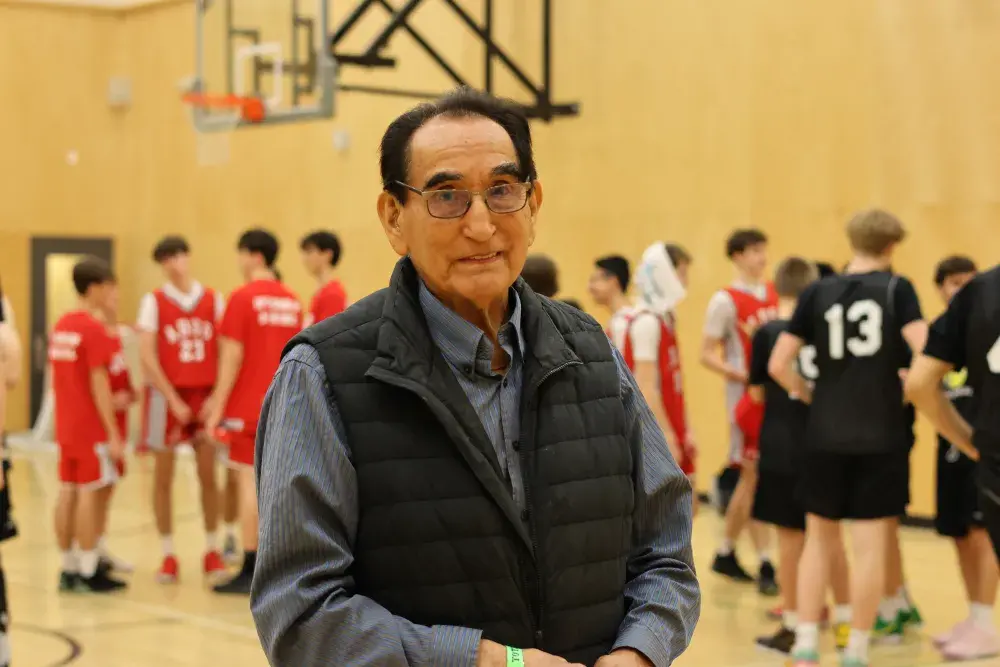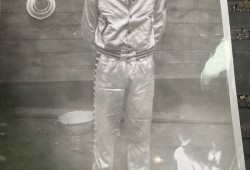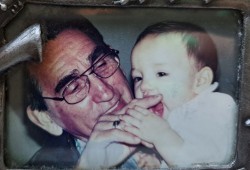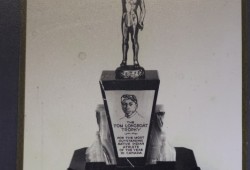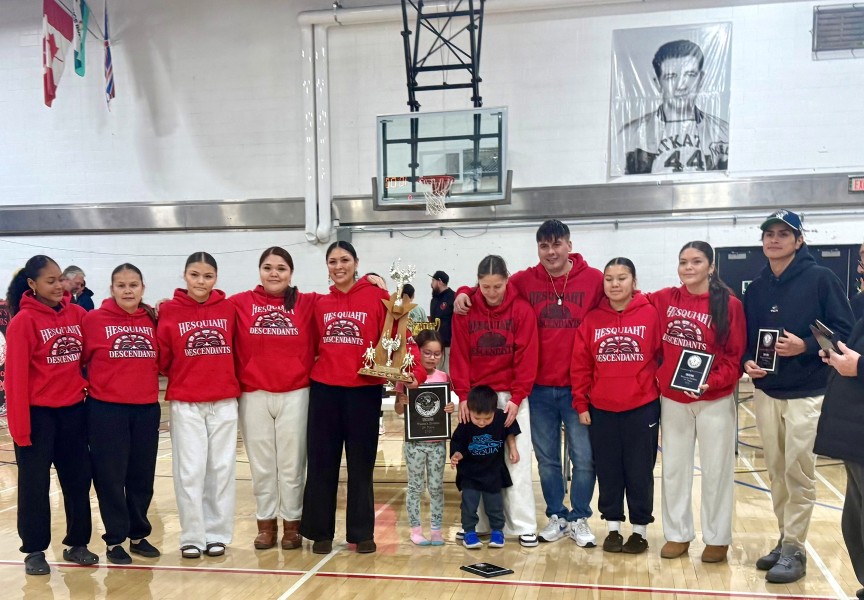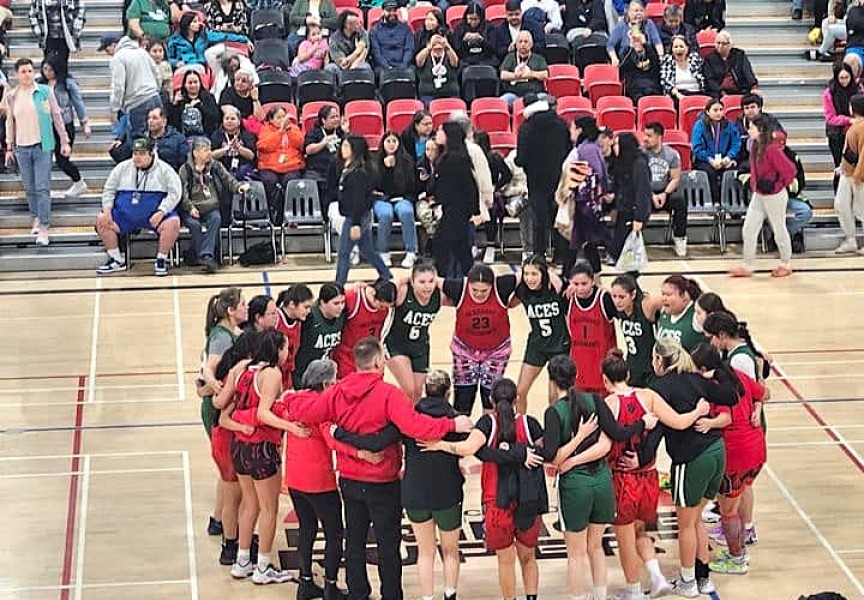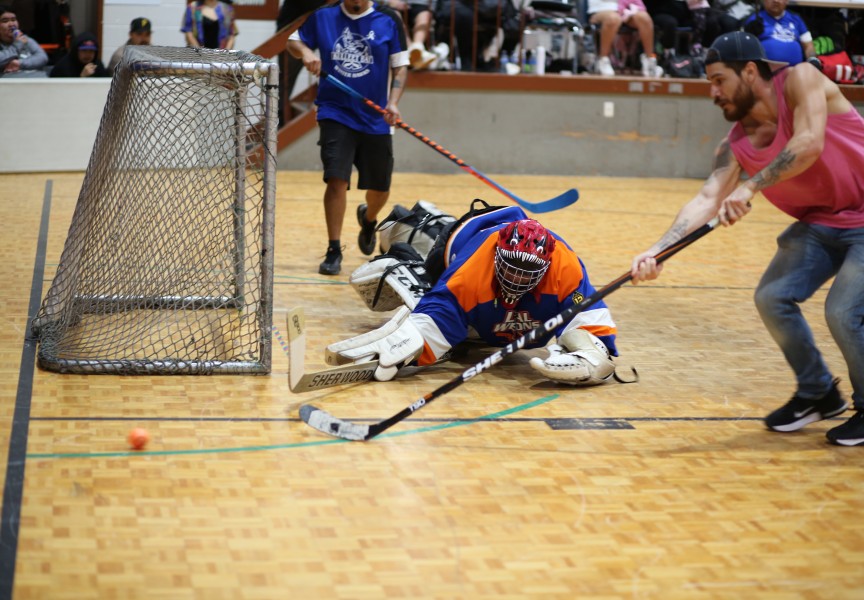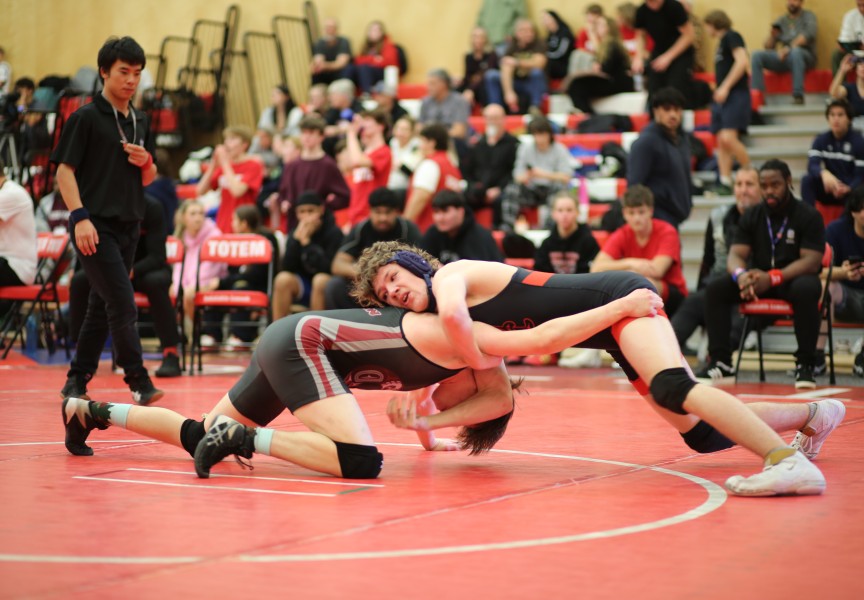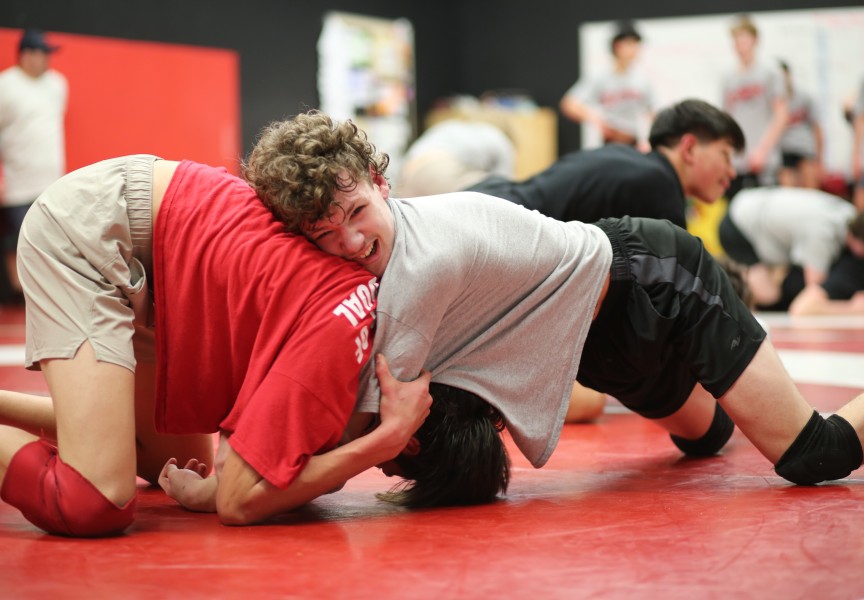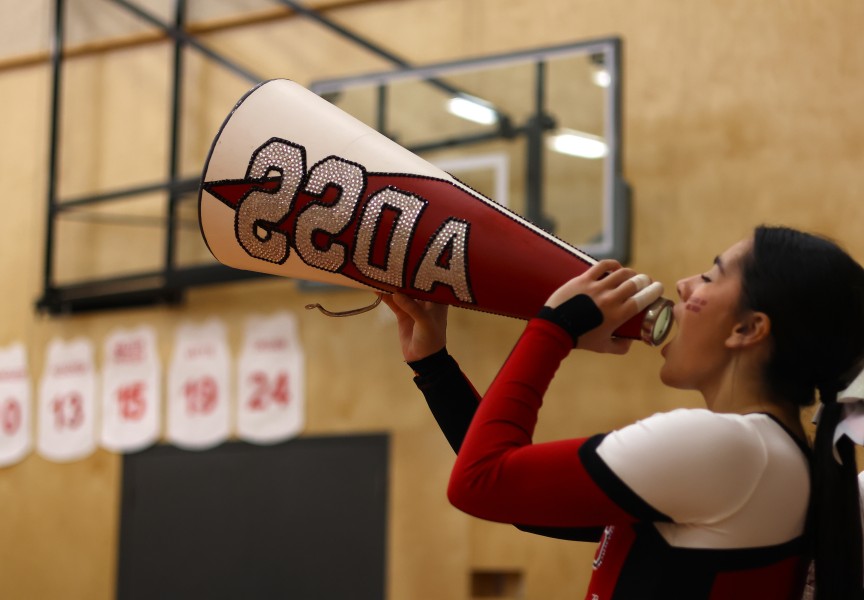Navigating a sea of red Totem 69 fans, an unassuming Tom Watts slipped into the Alberni District Secondary School (ADSS) gymnasium and posted up in the ‘Lifetime members’ seating area to watch the finals of B.C.’s longest running high school basketball tournament.
The whiff of fresh popcorn and Taylor Swift’s ‘I Knew You Were Trouble’ filled the air as the Alberni Storm senior girls team ran onto the court, sinking warm-up shots before a closely fought championship game against Pacific Christian School.
Watts pointed out his granddaughter, number 15 Jaidin Knighton, and says he showed her how to play.
“I love seeing her play. She’s a really good player,” said Watts, who celebrates his 90th birthday on Feb. 2.
In his heyday, Watts was an all-round athlete, excelling at basketball, softball, soccer and track and field.
“My name would be in the papers just about every week,” he recalls from his home along Highway 4 on the outskirts of Port Alberni, flipping through a stack of old clippings with dozens of headlines like ‘Strike out record, 13 batters’ and ‘Shut out’ chronicling his phenomenal athletic career.
The Tseshaht elder was the lone Indigenous player on the eight-man Alberni Athletic Senior A basketball team that won the Canadian Men’s Championships in 1965. He is an ADSS Athletics and Nuu-chah-nulth Sports Hall of Fame inductee, and in 1962 Watts was awarded the Tom Longboat Award, an annual accolade that recognizes Indigenous athletes for their contributions to sport in Canada.
“He’s my biggest inspiration,” said Knighton, who nabbed a Totem All-Star medal for her efforts over the Jan. 9-11 tournament.
“Ever since I was little, I would go into his room and there would be trophies everywhere. That really motivated me,” she said.
Knighton’s older cousin Dakota Rayner remembers her grandpa, or ‘hubba’, the made-up word the family calls him, driving from Port Alberni to Parksville to watch all her games when she played in middle school.
“Everything that I’ve learned in life is from him. He raised incredible women. He taught us to be tough, intelligent and always to keep one foot in front of the other and to just stay ahead of the game,” said Rayner, who celebrates her 26th birthday a day after her grandpa’s 90th.
“We are closer than close,” she said. “I can’t believe he’s turning 90. Not even 15 years ago, he was still walking on his hands. He’s so fit and he’s very ‘there’.”
When Rayner first started playing basketball, Watts made a deal to pay her $5 per basket during games.
“That whole $5 thing went down to $1 really quickly because we were easily getting 50 points a game,” she recalls with a laugh.
“He paid me out in cash and I had my own bank account. I had to get a letter from grandpa explaining why I have so much money because as a child, you’re not supposed to be putting that much into an account. To prove to the bank that I was not laundering money, I had to get letters constantly,” she said.
Then and now
Watts, who worked as a longshoreman, fisherman and plumber during his athletic days, thinks the kids coming up now are better at dribbling and shooting, but says the games are more disorganized.
“Right now, everyone is running everywhere. For me, it was always three passes. No dribbling. We always scored over 100 points every game,” he said. “When we were playing, we had a pattern. We knew where the ball was going every time. I remember all the games.”
“I could play the game before the game,” he continues. “It’s like dancing. I like dancing. I did a lot of dancing. I had thousands of tapes on dancing. When I go to sleep, I would think about what I had to do. It’s the same with basketball. You’re thinking about, ‘oh, I need to fake to right and go the left, every time.’ And when I look at the floor, I know where the hoop is.”
Watts attended the Alberni Indian Residential School (AIRS) until he was in Grade 7.
“They didn’t teach us hardly anything when I went to residential school. We all taught ourselves by playing,” said Watts.
He continued his schooling at ADSS and played for the senior boys basketball team, who were called the Chieftains at the time. He says he was always the only Indigenous person on the team and sometimes games would get put on pause because “Natives weren’t allowed in the park.”
“The referee or umpire would stop the game and say, ‘you’re not allowed in here’,” Watts recounts, adding that when the non-Indigenous teams needed a pitcher, they’d always come pick him up from the reserve.
He never went for beers after the game, partly because he says some of his teammates were “kind of racist people”, but also because he never partied.
“I was running a mile every morning and a mile at night,” Watts said. “That’s the secret to great basketball. Just like in other sports like hockey, the winners are always the fastest.”
Still fit at 90, Watts stresses the importance of living a healthy lifestyle.
“After the games, you can’t go party. You can’t drink, you can’t smoke. You need to train all the time. You need to rest before the games. Eat healthy foods too. Drink water,” he encouraged.

